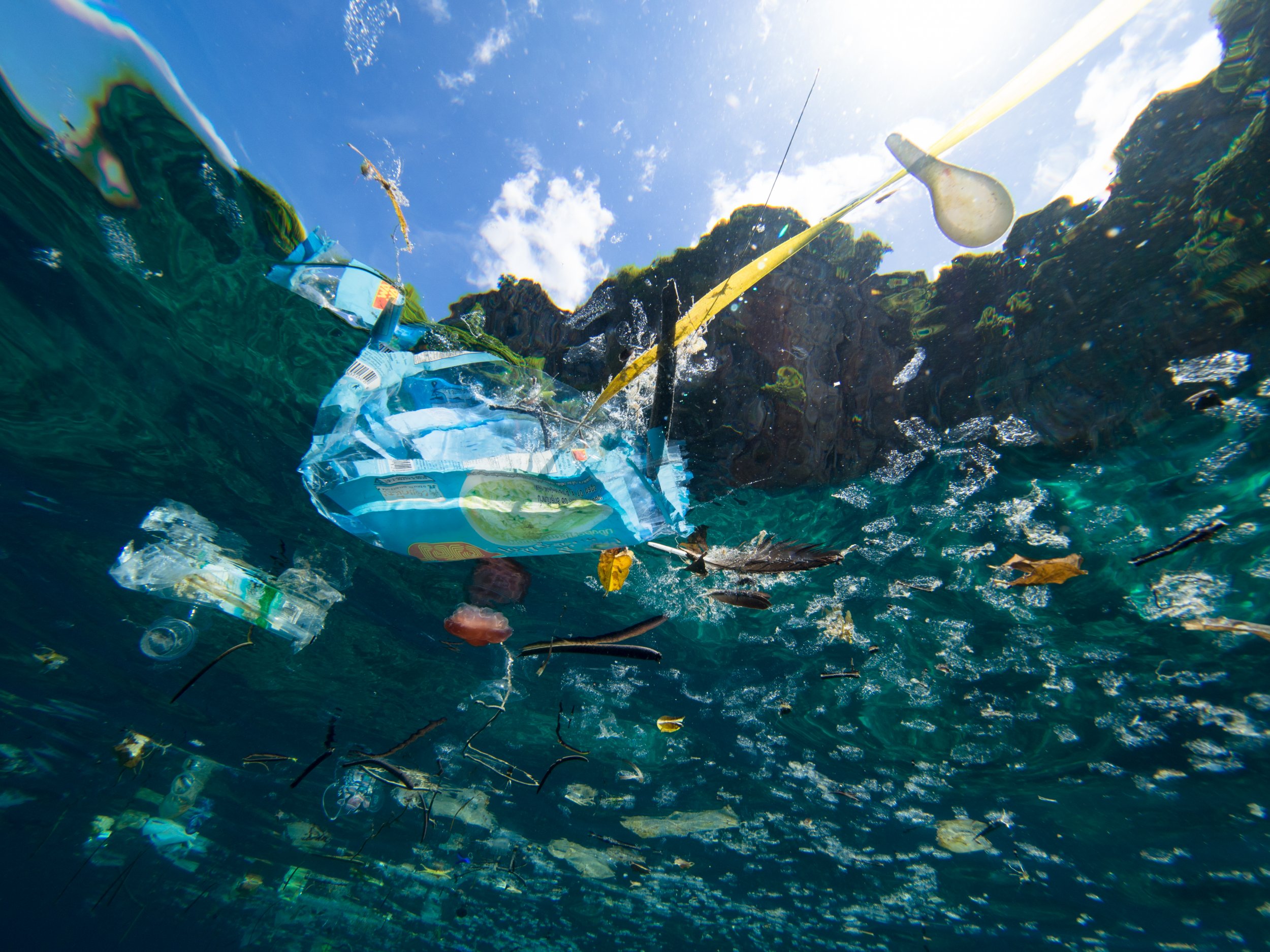
The Mediterranean Sea has been known for its pristine beaches, sparkling waters and picture-perfect islands. But humanity's voracious appetite for plastic appears to have ruined this image.
Researchers have spotted a floating "island" of plastic waste, measuring several dozen miles long in between the French island of Corsica and the Italian island of Elba—famed for once hosting the emperor Napoleon while he was in exile.
The plastic "island" has formed as a result of currents that carry the waste north before depositing it between Corsica and Elba, Agence France-Presse reported.
"The risk is that if there are poor meteorological conditions, for example a northeasterly wind in the summer, we will see a massive arrival [of the plastic] on the Corsican coast," François Galgani, from the Corsican branch of the French maritime research institute IFREMER, told AFP.
He said that unfortunately, large concentrations of plastic in this spot were nothing new, because of the way the currents flow in the area.
"This is a situation that is chronic, that is to say the layout of the currents means there are regularly very high concentrations in this area," Galgani told France Bleu.
"The currents in the northwestern Mediterranean are organized in such a way that the water goes up along the Italian coast, and when it arrives at the base of the island of Elba—of the Tuscan archipelago—it cannot pass and will rush into the Corsican canal. That is why we have higher densities," he said. "When we have adverse weather conditions, for example the northeast wind in summer, we have massive arrivals of plastic on the Corsican coast."
According to Galgani, accumulations of plastic such as this in the Mediterranean tend to last anywhere between a few days or three months. In this sense, they differ from the vast, permanent accumulations of plastic that can be found in certain regions of the Atlantic and Pacific Oceans—such as the Great Pacific garbage patch.
"There are places where we have a real plastic soup," Océane Couturier, member of a local French marine association, told France Bleu. "The problem in the end is that this plastic will accumulate in the tissues of fish, will diffuse its toxic products and we will eat these fish."
One 2015 study published in the journal Science estimated that between 4.8 and 12.7 million tons of plastic entered the world's oceans every year.
Uncommon Knowledge
Newsweek is committed to challenging conventional wisdom and finding connections in the search for common ground.
Newsweek is committed to challenging conventional wisdom and finding connections in the search for common ground.
About the writer
Aristos is a Newsweek science reporter with the London, U.K., bureau. He reports on science and health topics, including; animal, ... Read more
To read how Newsweek uses AI as a newsroom tool, Click here.






